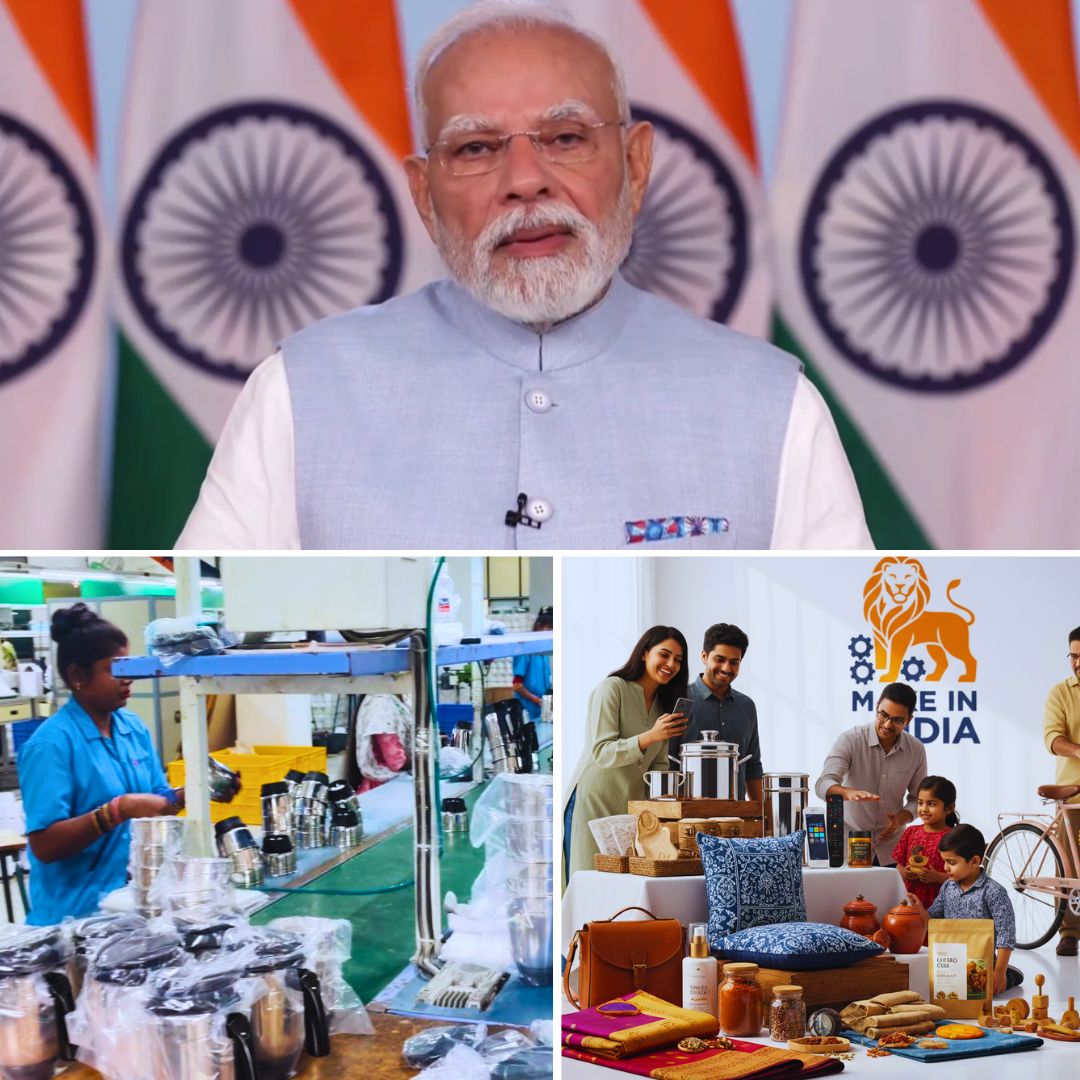Prime Minister Narendra Modi on September 21, 2025, delivered a renewed call for Indians to embrace products made in India as part of an intensified drive for economic self-reliance, or Swadeshi. This appeal coincided with the rollout of next-generation Goods and Services Tax (GST) reforms aimed at reducing tax burdens and making essentials more affordable, promising collective savings of Rs 2.5 lakh crore annually for citizens.
Modi urged all citizens, shopkeepers, micro, small and medium enterprises (MSMEs), and state governments to seize this opportunity for growth by supporting local manufacturing. The move comes amid heightened trade tensions with the U.S., following tariffs on Indian goods and increased fees for Indian professionals seeking U.S. visas.
Government officials, industry bodies, and experts have largely welcomed these initiatives as positive steps towards a robust Atmanirbhar Bharat (self-reliant India).
A Spirit Revived: The Swadeshi Movement Comes Alive Today
In his national address ahead of Navratri, PM Modi recalled the historic Swadeshi movement that was integral to India’s freedom struggle and framed it as a beacon for India’s current economic journey. The Prime Minister asked citizens to proudly adopt the slogans “I buy Swadeshi” and “I sell Swadeshi,” urging every household and shop to reflect and promote indigenous production.
This campaign, he stressed, is not just about pride but about creating a fertile environment for industrial growth across states. Modi’s message included a particular call for micro, medium, and small enterprises to manufacture quality products that can substitute foreign goods.
Officials from the Khadi and Village Industries Commission (KVIC) shared that the Khadi Mahotsav 2025, organised nationwide, also supports this vision by encouraging “Har Ghar Swadeshi” (Swadeshi in every home).
Contextualising the Economic Shift: GST Reforms and Trade Strains
The Prime Minister’s call is timed with the launch of next-generation GST reforms on September 22, which simplify tax slabs to 5% and 18% on most goods and services. This adjustment considerably lowers the cost of essential items such as medicines, insurance, and household goods, enabling greater disposable income and consumption.
Modi described this period as a “GST Bachat Utsav” (Savings Festival), starting with Navratri celebrations, designed to catalyse economic growth and consumer dreams. These reforms, alongside earlier income tax relief for middle-class earners, promise a Rs 2.5 lakh crore saving across the population.
On the global front, India is grappling with U.S. tariffs reaching 50% on imports alongside increased visa fees for Indian professionals, pressing the urgency for domestic economic resilience.
The Logical Indian’s Perspective
The Logical Indian welcomes the Prime Minister’s renewed Swadeshi push as a pivotal moment for fostering sustainable development rooted in indigenous enterprise. Such economic nationalism can spur local innovation, generate jobs, and empower small businesses, reinforcing economic resilience in an interconnected world.
However, the approach must remain inclusive and open, steering clear of protectionist or xenophobic tendencies, ensuring that India remains a global partner while strengthening its internal capabilities. Supporting Swadeshi should mean uplifting quality and fairness alongside pride and patriotism.
"हमें हर घर को स्वदेशी का प्रतीक बनाना है… हर दुकान को स्वदेशी से सजाना है।"
— BJP Madhya Pradesh (@BJP4MP) September 21, 2025
Besides urging people to buy Made-in-India products, PM Modi urged all state governments to actively support the Aatmanirbhar Bharat initiative and the Swadeshi programme by accelerating manufacturing… pic.twitter.com/eKUjMuYNPA











